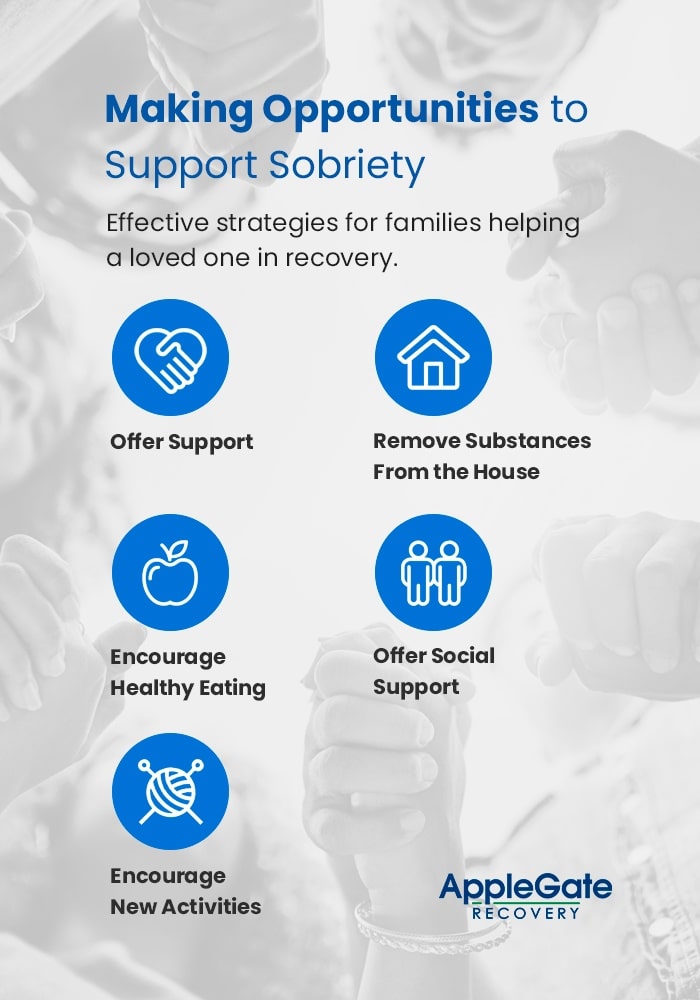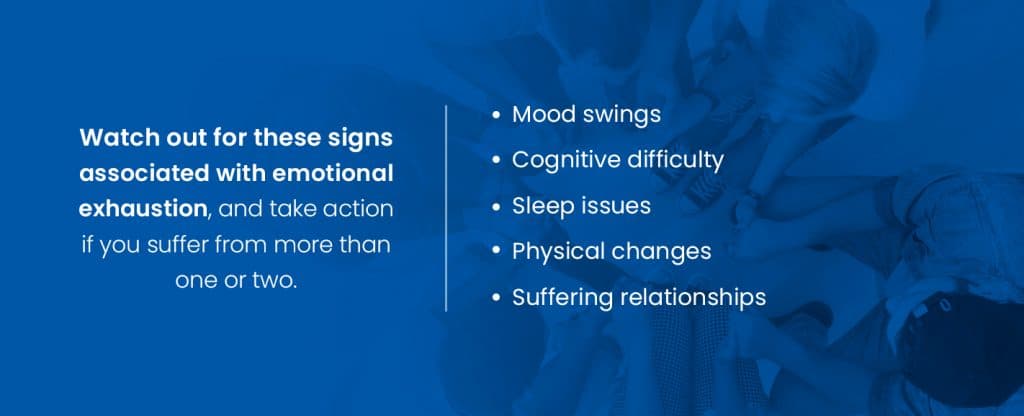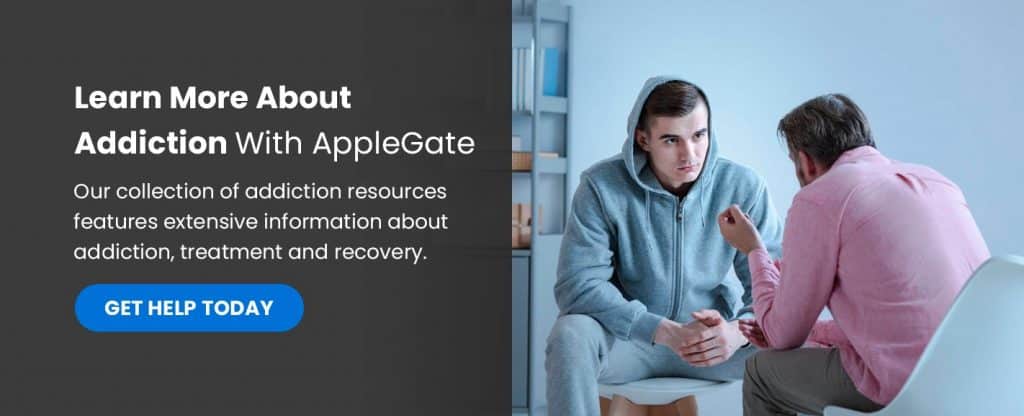Witnessing someone you love struggle with substance abuse and develop an addiction to opioids is truly disheartening and upsetting for anyone to experience. Feelings of helplessness and confusion are common and nothing to be ashamed about. You may be wondering what you can do help someone with an addiction, and you won’t be able to get satisfactory answers from the struggling individual.
Whether you’re friends or family, there are things you can do to help with recovery from addiction. We’ll explore some of the challenges and opportunities you’ll have to provide support and encourage maintained sobriety.
Living With Someone Recovering From Addiction
When you live with a person recovering from addiction, you’ve already seen the effects of substance abuse up close and personal. The tension in your relationship may be at an all-time high when the person completes treatment and is trying to adjust to life without substance abuse, so here are three tips to keep in mind.
1. Recovery Is Lifelong
People do not come out of addiction treatment “cured” of their substance use disorder. Treatment gives people the opportunity and tools they need to break free from addiction, but they must do the work to avoid temptation and stay sober. It’s essential to respect the effort the individual has put into their recovery, and support that effort whenever possible.
2. Relapse Is a Possibility
The most nerve-wracking aspect of living with someone recovering from addiction is the possibility they will relapse. Every person is different, and relapse may not look the same between individuals. Some people’s relapses are obvious affairs, characterized by extreme intoxication and potentially overdose. Other people relapse more quietly, and it may take time to discover they have returned to substance abuse because they hide it well.
Of course, many people successfully avoid relapse altogether. Either way, it’s critical to form a response plan for what you and your family will do if relapse occurs.
3. A Healthy Environment Is Key
Recovery from addiction is only sustainable in a healthy home environment. Your loved one has physical and emotional health needs to meet, and although that job is not entirely up to you and your family, your home should not be a source of stress for them. If your family members fight frequently and the house is always in a state of disarray, the resulting frustration may serve as a trigger for severe drug cravings.
Your home does not need to be sparkling clean and quiet all the time, but working to stay respectful of one another and the space can be an effective way to support the person in recovery.
Educating Your Family on Addiction and Recovery
Everyone living in the household needs to have at least a basic understanding of what addiction is and how it works. They need to understand people can’t quit their opioid addiction without proper treatment, and that addiction does not make your loved one a bad person.
If there are children in the household, educating them can be complex. In many cases, the behavior of the adult in recovery will have had adverse effects on any children in the home — especially if the adult is a parent. The child may have been lied to or subjected to mood swings that leave them feeling angry, confused and hurt. For kids, the most impactful part of addiction education is making sure they know they are not to blame for the illness or behavior of someone in recovery.
Adults are usually more interested in the science behind addiction. They should learn the mechanisms that lead to addiction and become familiar with the physical changes to the brain that make recovery such a challenge. The goal of addiction education for your family is to see the recovering person more clearly and compassionately. It should also give them an idea of what to expect if things go wrong. If you’re not sure where to start, there are considerable resources available to guide you, including:
These resources can provide plenty of helpful educational material on how family members can get involved in recovery.
Creating and Maintaining Reasonable Expectations
One of the most challenging aspects of helping a loved one in recovery from opioid addiction is knowing what your expectations should be and how you should attempt to enforce them. This task can be particularly touchy when the recovering person is a parent. Consider these three concepts when forming and adjusting expectations.
1. Support Is Not Control
The line between being supportive and being controlling is not always easy to identify. It helps to remember your role is to make it easier for the recovering individual to make the right choices, not to control their every move or implement punishments to keep them in line.
2. Mutual Input Is Beneficial
The definition of “reasonable” expectations will vary among families and individuals. The relationship you have to the recovering person has a significant impact on what you can expect. For instance, it may not go over well to try and agree on a curfew if the person in question is your father or aunt. However, if you’re the parent of an adult child in recovery, it may be appropriate to implement.
When setting boundaries and expectations of behavior, seek the input of the person in recovery. Being on the same page with the expectations in your home is crucial to the successful fulfillment of those expectations.
3. Response Plans Are Key
While you’re agreeing on expected behavior, you should also agree on the consequences that will occur if the person breaks your trust. Consequences are the tools you will use to keep you and your family safe in the event of a relapse or other incident. They should not punish the individual.
For example, if someone relapses, it is reasonable to require them to re-enter a treatment program. However, it is not fair to drag them out in front of the whole household and demand answers, humiliating them in the process. You should choose any consequences you agree upon solely for the benefit and safety of everyone involved.
Making Opportunities to Support Sobriety
Helping someone in recovery isn’t just about mitigating negative behaviors. It’s about creating opportunities to be a positive influence. Here is where concrete actions come into play. Here are five of the most effective strategies for families helping a loved one in recovery.

1. Offer Support
You shouldn’t become a second counselor to someone in recovery, but people do need someone to talk to who isn’t a paid professional. Let the person know you’re available to help them process and get some things off their chest, but don’t be tempted to drop everything whenever they need to talk.
You are just one part of their support network, and your contribution to their recovery shouldn’t jeopardize your emotional health.
2. Remove Substances From the House
One of the most important ways to show support is to embrace the sober lifestyle yourself. If your loved one lives with you, that means getting rid of all substances of abuse. Even if a person was addicted to opioids, they may feel tempted to seek intoxication through legal means like alcohol. Marijuana is another common drug you’ll need to remove. If someone in the household takes legitimately prescribed opioids for pain, you must store them under lock and key. Removing all substances from the equation is a fundamental way to help a family member with opioid addiction.
Even if your friend or loved one doesn’t live with you, making a point to stay sober is an excellent way of showing solidarity with their recovery efforts.
3. Encourage Healthy Eating
Addiction affects physical health both directly and indirectly. Substances themselves can harm the body, such as alcohol causing liver disease and opioids interfering with the digestive system. Substance abuse also leads to negative behaviors like irregular eating patterns and a nutritionally poor diet. Introducing a balanced diet can help reverse some of the physical effects of addiction and promote better health during recovery.
Anything you can do to encourage healthier eating in your loved one will help. It can mean sharing a balanced meal once a week, sending them healthy recipes or even helping them cut back on junk food.
4. Offer Social Support
People in recovery have usually lost a lot of their friends. It may be due to their harmful actions, or it may be because a good portion of their old friends enabled their addiction or were addicted themselves. Either way, an essential part of a successful recovery is building a new network of healthy relationships. Doing so is often difficult even under normal circumstances, and people in recovery may feel judged or ashamed and avoid socializing.
You can help by introducing the person in recovery to your clean and sober friends. You can also support the person by accompanying them to social events or support groups. Having a trusted friend around can help people in recovery relax enough to fully engage in social activities and reduce any anxiety they may feel about meeting new people.
5. Encourage New Activities
Between obtaining, using and recovering from the use of drugs, addiction is an extremely time-consuming condition. People in recovery suddenly find they have a good deal of time on their hands, and if they don’t fill it with constructive activity, they may struggle unnecessarily with excess cravings.
To help your loved one keep their mind off of substance abuse, encourage them to participate in a hobby. Learning new skills can help retrain the brain to experience reward from healthy activity instead of substance abuse. Get your loved one to sign up for a language course, get a plot in the community garden or join a casual sports team.
Not only will you help take their mind off cravings, but you’ll also strengthen your relationship while having a good time. Be sure the activities you check out don’t involve substance use. That painting class or book club may serve wine, for example, making the activity inappropriate for someone in recovery. Exercise or physical activities can be a great solution to spending time well and improving health and well-being.
Taking Care of Yourself So You Can Help
Your desire to help and support someone recovering from opioid addiction is admirable. However, if you give too much of yourself to this cause, the stress can lead to emotional exhaustion or burnout. Watch out for these signs associated with emotional exhaustion, and take action if you suffer from more than one or two.
- Mood swings: If you find yourself fluctuating between emotions like anger, hopelessness and anxiety, it’s time to take a step back.
- Cognitive difficulty: Emotional exhaustion can make you so tired it feels like a thick fog has enveloped your brain, making it difficult to perform tasks that involve thinking.
- Sleep issues: If thinking about your interactions with your loved one is keeping you up at night or disturbing your sleep, that’s a sign you need to put yourself first for a while.
- Physical changes: Headaches, changes in appetite and even heart palpitations can result from the stress of caring for a loved one.
- Suffering relationships: Giving all your attention to the person in recovery means that your other relationships will suffer, and you may lose them altogether if you’re not intentional about keeping them.

Avoiding emotional exhaustion involves setting clear boundaries and making time to take care of yourself. For example, you might decide not to answer phone calls after a specific time and to create a soothing routine for before bed. Taking care of yourself might also mean enlisting the help of a professional counselor to help you work through complex emotions associated with being close to someone in recovery.
It’s common to feel like you’re not doing enough to support your loved one. It seems like there’s always something more you can do, and that’s usually true. However, giving it your all is a surefire way to ensure you don’t have enough energy and emotional bandwidth left for yourself or your family. Balancing your needs with the needs of your loved one is not always straightforward. Setting boundaries and making sure you have someone to talk to can help.
Learn More About Addiction With AppleGate
If you’re wondering how to help your loved one in addiction recovery, you’re not alone. Millions of individuals struggle with opioid addiction, and their families feel as lost and concerned as you do. AppleGate Recovery provides evidence-based treatment for opioid addiction, but we’re also interested in helping you find the information you need to support the person you care about.

Our collection of addiction resources features extensive information about addiction, treatment and recovery. If you have further questions about what our programming at AppleGate is like, or what you should expect from your loved one in recovery, don’t hesitate to get in touch. You can reach AppleGate by phone at 888-488-5337 or fill out our contact form for a timely online response. The more you learn about opioid addiction, the better you can support the person you care about as they pursue the goal of permanent sobriety.

Contact AppleGate Recovery Today
If opioid addiction is impacting your life or the life of someone you care about, reach out to our treatment center. We are here to provide the support and care you need to take the first step toward recovery.
Call 888.488.5337